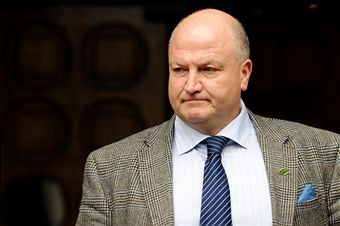 The TUC Conference rumbles on with some rather blood-curdling statements about the
future of industrial relations in Britain. The RMT leader Bob Crow called for a campaign of civil disobedience and spoke of ‘confronting… the enemy’. The PCS’ Mark
Serwotka has spoken of a ‘campaign of resistance the likes of which we will not have seen in this country for decades.’ Perhaps for good measure, the TUC also took the opportunity
to attack our recent report on modernising industrial relations.
The TUC Conference rumbles on with some rather blood-curdling statements about the
future of industrial relations in Britain. The RMT leader Bob Crow called for a campaign of civil disobedience and spoke of ‘confronting… the enemy’. The PCS’ Mark
Serwotka has spoken of a ‘campaign of resistance the likes of which we will not have seen in this country for decades.’ Perhaps for good measure, the TUC also took the opportunity
to attack our recent report on modernising industrial relations.
The trade unions are arguing vociferously against not only the very clear necessity for reductions in public expenditure, but also any change in industrial relations procedures which are largely obsolete for the modern workplace.
One current problem is that ballots typically neither specify a particular grievance nor indicate the length and nature of industrial action. Another is that unions devote so little of their resources to keeping membership lists accurate that they often fall foul of balloting requirements – failing to issue ballots to members entitled to them or issuing them to members not entitled. To avoid this situation, we propose a joint audit of union membership by employers and unions – making legitimate strike action easier.
In addition, we propose a 40 percent minimum threshold of trade union members voting for a ballot to be valid – something the unions have claimed would be unprecedented. In fact, one of the reasons we chose this figure is that it is consistent with initial balloting requirements for trade union recognition. This would pose no problems when there is a clear wish by trade union members to strike (meaning, after all, that virtually fourth-fifths of union members could vote against or not at all for a strike to go ahead) – but it would stop a militant minority causing disproportionate damage to businesses and public services, as is presently the case.
The TUC also claim that workers are free to join any union they want. However, quite apart from the fact that the number of unions has fallen dramatically in recent years, since the Employment Relations Act 1999 gives a single trade union statutory rights to formal recognition by an employer, it is all but impossible for another trade union to function where there is an incumbent. This situation is reinforced by the Bridlington principles, which state that all TUC-affiliated unions are required not to recruit workers where another union has a majority and negotiating rights. Both the law and trade union behaviour give unions monopolies on particular workplaces. We believe that workers should have choices — choices of where to work, and choices of what unions to belong to. Some unions may simply be too large and it may be time for competition policy to intervene.
Allowing agency staff to cover the work of striking employees would simply recognise the fact that a worker does not own their job. In practice, employers can already employ agency staff to cover a wide range of matters around a strike. The problem is that unions often intimidate employers with threats of legal action to stop them doing this. This reform would clarify the situation.
Our proposals seek to reinforce the useful work that trade unions often do: helping members with training and advice, resolving workplace grievances, being an effective conduit of information between employers and employees and negotiating wages where individual negotiation would be inconvenient or expensive. However, as we have often seen, unions can also act as an obstruction to reform, wrecking businesses and public services in an attempt to supplant the policies of elected governments with their own. Sadly, judging by current performance, it is the latter path that certain union leaders seem determined to take.
Ed Holmes is a research fellow in Policy Exchange’s Economics Unit.






Comments